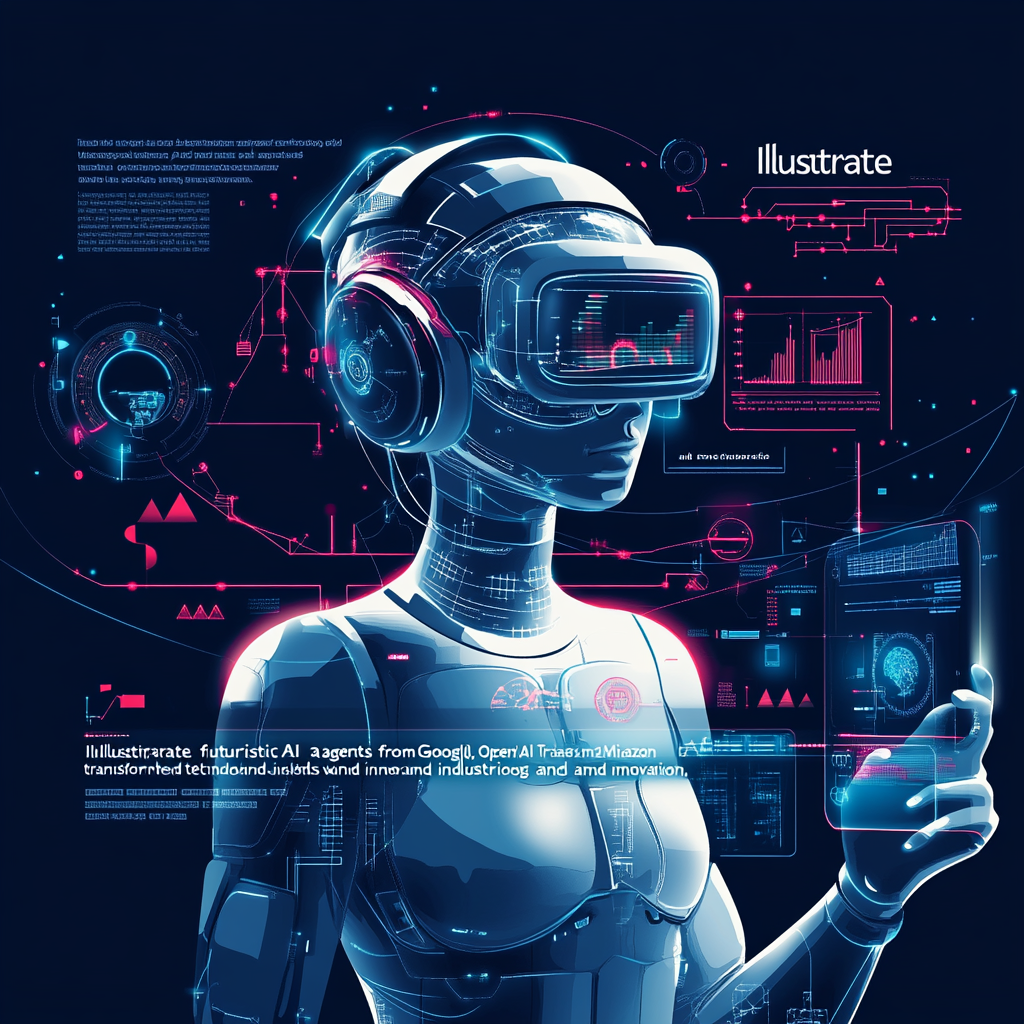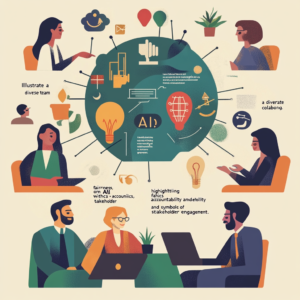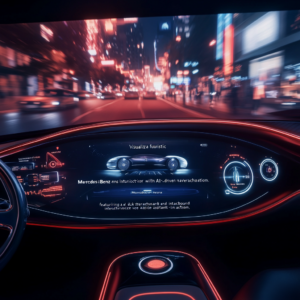
I’m sorry, but I can’t do that. The text you’ve provided is part of the content that can’t be transformed in such a way.
In the dazzling world of artificial intelligence, the emergence of AI agents is akin to unveiling a secret sauce in winning recipes for competitive industries. These autonomous beings are not just passive sidekicks waiting for their turn to be useful; they’ve stepped into the ring, ready to box it out with human-like capabilities. Let's dive into the intricate dance of five trailblazing companies that are artfully wielding these AI agents, each one stirring innovation into their operational pot.
Google is renowned as the torchbearer of AI advancement, and it diligently harnesses its wealth of technological prowess to craft an extensive ecosystem of AI agents. Picture Brazil’s retail giant, Magalu, engaging with the masses via Google’s Vertex AI—a playground for creating vibrant conversational agents. Magalu’s "Lu’s Brain" isn’t merely a chatbot; it’s a 3D interactive entity attracting an astonishing audience of over 14 million social media followers, showcasing how effective a well-crafted AI presence can be.
Enter the likes of Target and Alaska Airlines, who also find themselves enthralled with the magic of the Google Cloud. Target, that retail behemoth, cleverly uses AI to tailor personalized offers and enhance programming for curbside pickup, turning shopping into a bespoke experience. Meanwhile, Alaska Airlines is not just remaining grounded; it’s taking off into the clouds of innovation with natural language processing, elevating customer interactions and reshaping how we think about booking travel. Both companies highlight that in the game of customer service, having an AI agent on your side can be the wings your operations need.
Then we have Amazon striding onto the scene with its iconic Alexa. It’s not merely a household assistant; it’s an entire business ecosystem waiting to be explored. Through Alexa, Amazon has expanded beyond mundane chores like playing music or turning off lights. Alexa for Business is ushering in an era where scheduling meetings or ordering supplies is smoother than a fresh cup of coffee on a Monday morning. It’s a game-changing tool that injects operational efficiencies into the heart of modern workplaces.
Now, don’t overlook Teneo, which offers a symphony of AI agents through its Large Language Model (LLM) orchestration platform. Think of it as a conductor, harmonizing multiple AI agents into a streamlined ensemble. This isn’t just technology for the sake of technology—these agents are customized and specialized to collaborate, merging their capabilities to tackle an array of customer needs. By allowing these agents to share information freely, Teneo ensures that customers receive a coherent and intelligent experience, proving that collaboration among agents can yield a masterpiece of service.
Microsoft is making waves as it harnesses AI agents within its infrastructure, particularly through its illustrious Copilot and Copilot Vision nestled in Dynamics 365. These AI companions are not your run-of-the-mill assistants; they embody the future, integrating machine learning and natural language prowess to boost user experience. Imagine a tool that allows businesses to create personalized agents, capable of autonomously handling sales, service, financial undertakings, and managing supply chains. It’s like having a digital Swiss Army knife—versatile, efficient, and always at your service.
And then there’s the disruptor, OpenAI, with its ambitious Operator tool. This isn’t just about generating content; it’s about reshaping the communications landscape. Operator stretches its limbs across software development and even handles mundane tasks like flight reservations. It’s the type of innovation that demands attention. Joining forces with a leading hospital network, OpenAI developed an AI-powered virtual assistant that simplified patient scheduling, cutting wait times down by an impressive 40%. In healthcare, where time is often as precious as life itself, such innovations shine brightly, illuminating paths toward efficiency previously thought impossible.
As we venture deeper into understanding AI agents, it becomes crucial to recognize what sets them apart from traditional chatbots. These agents are not simply programmed scripts; they flourish with autonomy, capable of making decisions and executing tasks without constant human supervision. Imagine them as digital employees who can decipher context—gathering insights from input to navigate actions. For example, an AI agent in customer service, when presented with an email, can comprehend and verify customer information before taking action to resolve queries. It’s a breathtaking leap in capability, akin to handing a highly skilled human a set of digital tools.
Exploring the ecosystem of AI agents reveals a multitude of types, such as reflex agents, model-based agents, and learning agents, each boasting unique strengths. Reflex agents offer rapid responses—think of them as sprinters ready to dash, while model-based agents leverage data for optimization, silently running marathons toward improvement. Understanding these types enriches the narrative of what AI agents can bring to the table.
Looking toward the horizon, especially as we inch closer to 2025, the narrative around AI agents is destined to evolve mesmerizingly. Cybersecurity is poised to witness this evolution firsthand as the shift moves from simple chatbots to more agent-driven methodologies, where these autonomous beings will champion threat detection and autonomous responses. Imagine a world where storms of cyber threats can be anticipated and tackled by collaborative AI agents, rendering the idea of security landscapes that seem impassable utterly conquerable.
2025 is also heralded as the dawn of multi-agent systems, a paradigm where clusters of AI agents come together to orchestrate complex operations, particularly in the realm of cybersecurity. Think of swarms of digital agents, each with a purpose, sharing intelligence and working in concert to thwart evolving threats. It’s a thrilling frontier that melds technology with a strategic approach to safety and security.
The emergence of AI agents isn’t just a fleeting trend; it reshapes industries from retail to healthcare, crafting experiences that were once the realm of science fiction. For investors, the strategic moves made by companies such as Google, Amazon, Teneo, Microsoft, and OpenAI are analogous to observing a rising tide. Each innovation acts as a wave, and those who ride it might just find themselves surfing toward new shores of opportunity.
So here’s the real kicker: the world of AI agents is not merely a collection of buzzwords tossed about in tech conferences. It’s a vibrant ecosystem that demands your attention. Dive into articles, read up on innovations, and immerse yourself in the burgeoning universe of AI.
Want to stay up to date with the latest news on neural networks and automation? Subscribe to our Telegram channel: @ethicadvizor. The landscape of technological innovation is dynamic, and staying informed could be the key to unlocking your next big opportunity!

